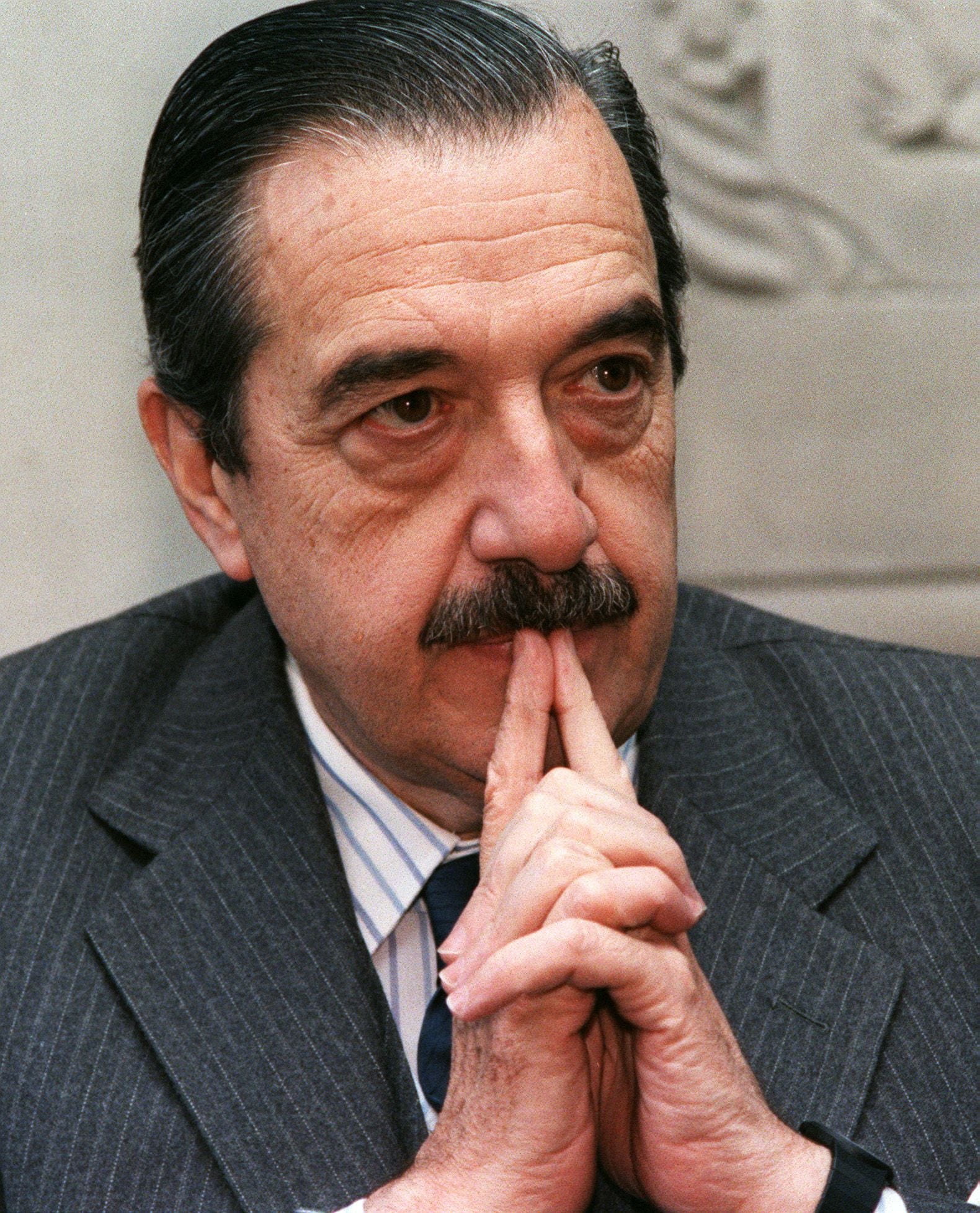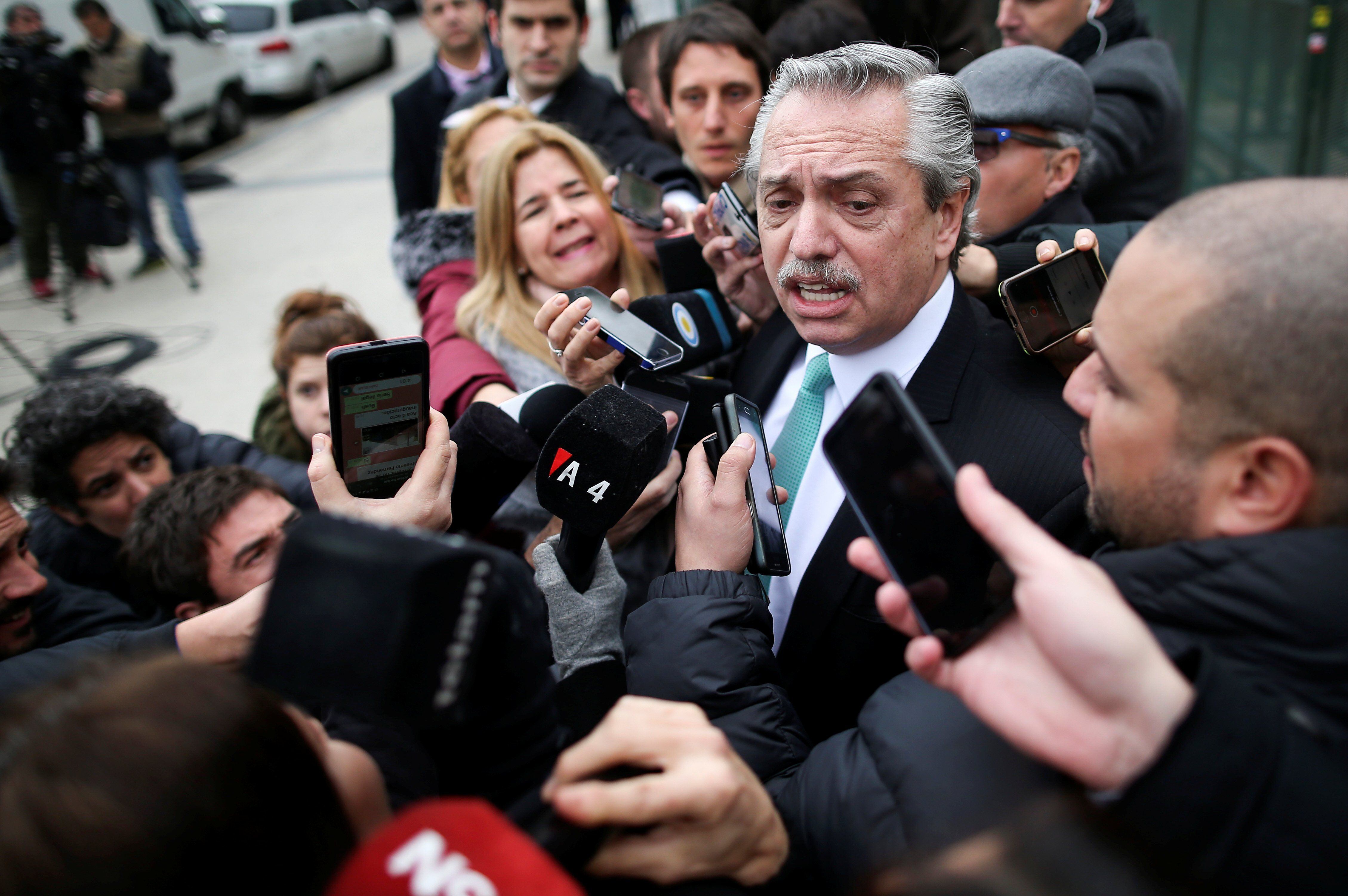On Wednesday, Argentina announced that, for 90 days, it will freeze the prices of 1,247 products, a way in which they seek to stop economic inflation (which exceeds the 100% yearly).
The person in charge of announcing the measure was Roberto Feletti, Secretary of Commerce, who noted that the decision is diametrical for the “social balance”.
READ ALSO: Kirchner minister intimidates the creator of Gaturro and provokes a wave of indignation in Argentina
It is, as he stated, an agreement between the State, companies and supermarkets so that “mass consumer products (food, cleaning and personal hygiene)”Maintain the prices you had on October 1.
In addition, to explain this decision, Feletti said that the following quarter there will be a “consumption expansion“In Argentina for various reasons, such as the”Christmas bonus, holidays and vacations”.
- “You smiled too much”: young professional tells the reason why she was rejected from a job
- Argentina: subject leaves 16-year-old Peruvian paraplegic after shooting her for not lowering the volume to the music at a party
- Cristina Kirchner is dismissed for alleged cover-up
“And with the fall of contagions [de COVID-19] there is a greater expectation of circulation. We cannot allow consumption growth to be thwarted by a rise in prices“, Held.
“Companies were asked to [estos productos] have a sign and are signposted. Instead of Frozen, I prefer to use Stabilized”.
According to Infobae, freezing prices – something that will be effective until January 7, 2022 – is just one measure within several that are part of the stabilization plan and that “there will be no strict rule”.
READ ALSO: Argentina vaccinates children from 3 to 11 years old against the coronavirus with doses of Sinopharm
It works?
The newspaper “La Nación” recalled the previous occasions in which this same measure was proposed and what the results were.
According to the analysts consulted, this decision “has a short-term effect” and “it does not serve to stop the trend in time”.
“Seventy years ago, it was Juan Domingo Peron who opted for a price freeze and control plan. In his second term, with an economy with rising inflation, he decided to create the National Commission of Prices and Wages”, Says the media.
The result? The rebound effect: “Inflation, which had climbed to 38.8% in 1952, with a 6.6% drop in GDP, fell to 4% the following year, with a 5.4% rebound in GDP.”.
“But in 1955, the rise in retail prices would return to double digits (12.3%)”.
Perón would repeat the plan in 1973, taking into account that, a year earlier, inflation exceeded 60%, and that it managed to lower it to 17%.
The measure by a combination between the international situation and the death of the military, so that, in 1974, inflation marked the 24%, and, a year later, 182%.
A stubborn measure
Raúl Alfonsín it also applied price control and failed: “inflation averaged 398% per year, with a hyperinflationary price in 1989 (which replicated in 1990)”.
The president who took the post, in the 2006, it was Nestor Kirchner, who wanted to subtract power from the inflation of the previous year (12,5%)
“However, the trend did not stop, the evolution of prices continued to rise and the following year the Government intervened the Indec so that the official statistics did not reflect this acceleration, “he says. “The nation”.
Mauricio Macri He was also tempted to execute this strategy.
The 2019 painted the worst: “recession, inflationary acceleration, currency devaluation”And, to top it all, the elections were coming.
What did Macri do? “La Nación” recalls:
“In April, the government ordered the freezing of 60 food products for seven months (until the elections), gasoline and UVA credit quotas, in addition to the elimination of VAT for some foods”.
There were no good results: “inflation that year was 53.8%, the highest since 1991″.
And Alberto Fernández?
At the beginning of the coronavirus pandemic, the current Argentine president presented Maximum Prices, a program that “initially frozen 23,000 products as of March 6”.
In June, he announced that the plan was ending, so this is your second try.
In this regard, the founder of the consulting firm Analytica, Ricardo Delgado, declared to “La Nación” that it is a mistake to think that “these controlled and regulated price mechanisms“Are part of a”global anti-inflation strategy, and that’s a mistake”.
Who has a similar opinion is the founder of C&T Asesores Económica, Camilo Tiscornia. “The history of price freezes shows that they are not effective […] They can hold it for a while [la inflación] […] But sooner or later those prices have to unfreeze, it is paid with an accumulated correction and more or less important some time later.”, He declared to the Argentine media.
- Cristina Fernández: How much is the luxury belt that you used in the Senate session valued for?
- Pre-trial detention for Andersen Bråthen, Norway’s bow and arrow killer
- The cartoonist who had to leave Nicaragua because of Ortega’s repression: “I want him to pay for all his atrocities”
- What are the new requirements to travel as a tourist to the US from November?
- The United States will reopen land and air borders on November 8 only for vaccinated foreigners
.

:quality(75)/cloudfront-us-east-1.images.arcpublishing.com/elcomercio/FW5EKBYFRFG3DCZCALWTFLGZXE.jpg)



:quality(75)/cloudfront-us-east-1.images.arcpublishing.com/elcomercio/X4Q6IIJPHZHQJBYDUXGWHKUSQM.jpg)
:quality(75)/cloudfront-us-east-1.images.arcpublishing.com/elcomercio/USWREFOULJGQNKIUNLWLPNIOPU.png)
:quality(75)/cloudfront-us-east-1.images.arcpublishing.com/elcomercio/FKFSIU77ZJBKBCX7BNLV2CGT6A.jpg)
:quality(75)/cloudfront-us-east-1.images.arcpublishing.com/elcomercio/OXKUZIVOMJCBND7BN4YKDE4F4I.jpg)
